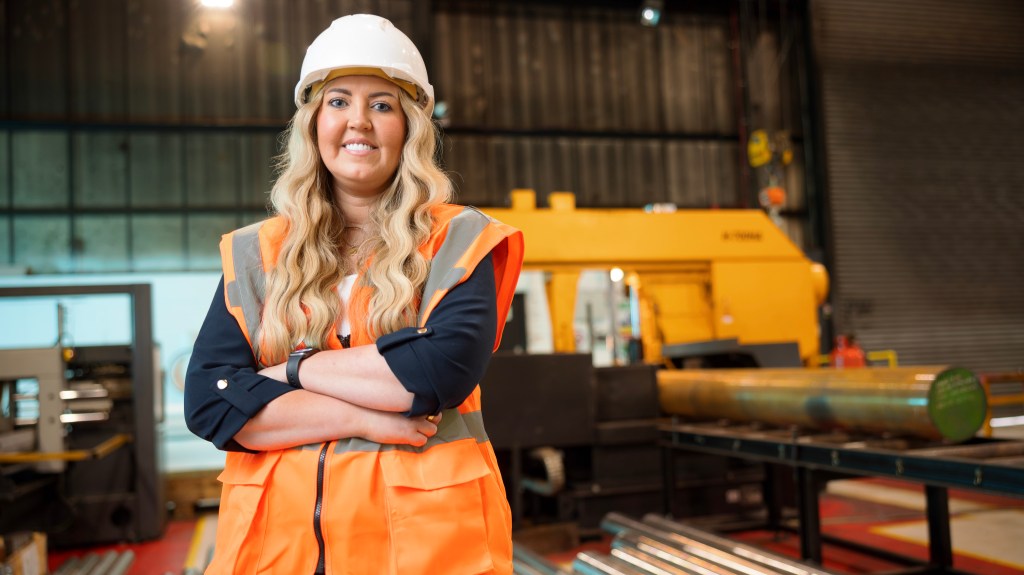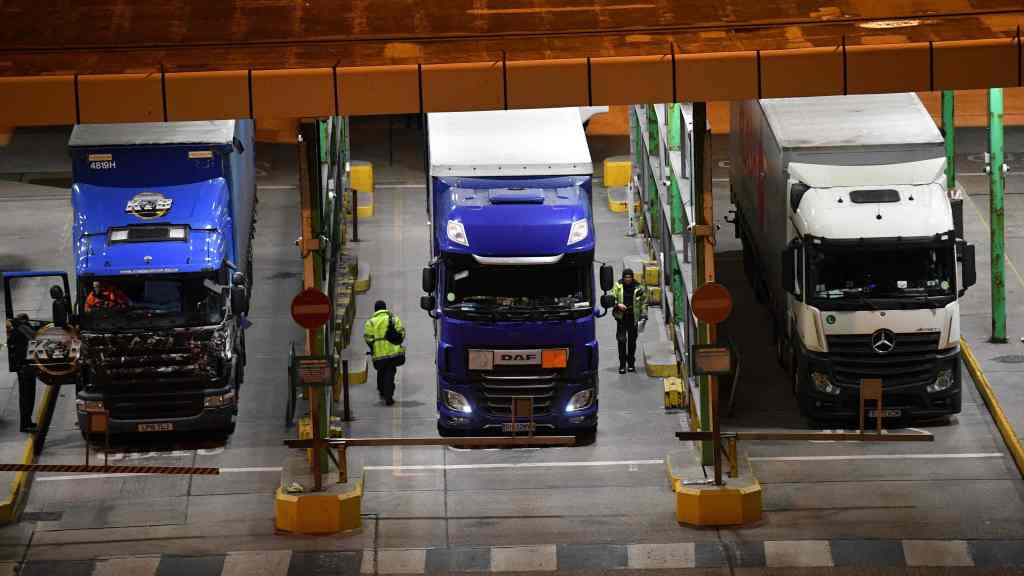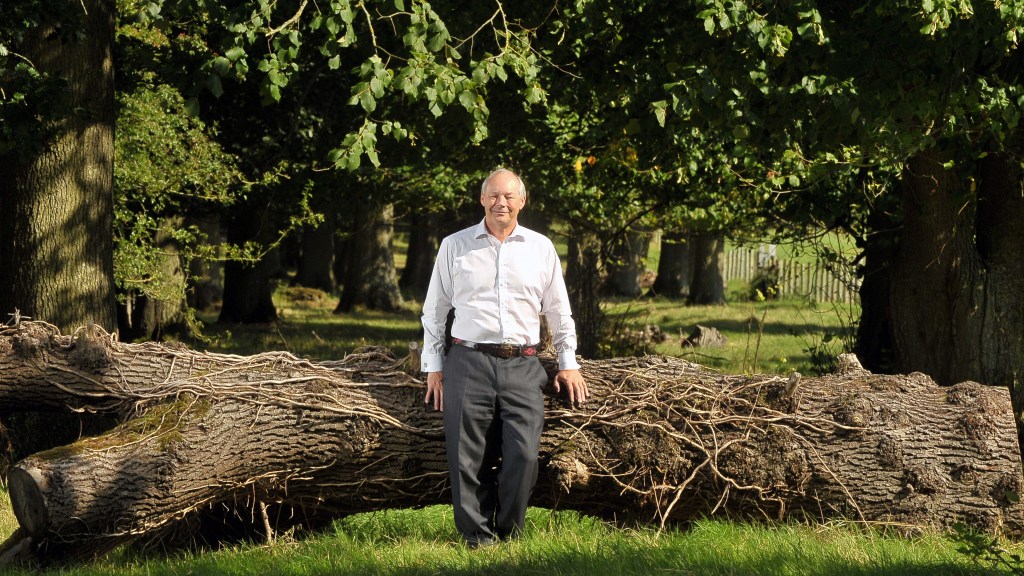Despite Bank Rejection, Emma Parkinson Builds Successful Career in Steel
Emma Parkinson had never envisioned following in the footsteps of her grandfather, father, and uncle into the steel industry—until an unexpected job offer altered her career path.
Her journey began while working for a recruitment agency when one of her clients, Barrett Steel, offered her a position. “They essentially said, ‘You’ve got something. We don’t know what it is, but we like you and we want you to come and work for us,'” recounted Parkinson, now 36.
Initially, she had to start from the bottom and climb the corporate ladder. In her early twenties at the time, Parkinson eagerly embraced the opportunity to join the Bradford-based company that supplies steel for constructing buildings and industrial facilities.
Parkinson began as an administrator in the sales department, where she quickly learned who the key customers were and identified areas for improvement. By the time she left in 2018, she was running her own division. After holding positions at various other companies within the steel sector, Parkinson was set on building her own business—the only way she felt she could truly own her success.
“I felt like I’d hit a ceiling. In this industry, directors and shareholders tend to be older, white males. My face didn’t fit that mold. They were happy for me to do a great job, but I wasn’t seeing any personal progression. Being so ambitious, I needed more.”
In 2019, Parkinson founded Chesterfield-based International Energy Products, which manufactures steel components for a diverse set of industries ranging from oil and gas to renewables and automotive. She identified a market gap for providers offering shorter turnaround times and superior customer service. “One thing I noticed when I entered this industry was the general acceptance of poor service and late deliveries,” she said.
“It’s an unpredictable industry because manufacturing doesn’t always go as planned. This led to a complacent attitude that poor service was normal. I saw an opportunity—just be better than the competitors. Given their poor performance, it wasn’t hard to achieve that.”
The company’s innovative approach to customer service boosted its turnover from £380,000 in its first year to over £7 million by March, with a pre-tax profit of £329,000, earning it the 37th spot on this year’s Sunday Times 100 ranking of the fastest-growing private companies in Britain.
Parkinson now employs 28 people and aims to hit £15 million in sales this year. She is the sole shareholder after buying out her investor two years ago and isn’t shy about her ambition to create wealth, having grown up in a working-class, single-parent family.
“Coming from a humble background, my biggest fear has always been financial insecurity,” Parkinson said. “For those whose parents own their home, there’s a sense of financial safety that I never had.”
This mindset contributed to her decision to forego university—”much to my mother’s disappointment”—even though she initially considered a career in law.
“My mom said, ‘If you were going to university, I’d support that. But since you’re not, you need to get a job and find your own way in the world.”
After applying for numerous jobs, Parkinson landed a temporary administrative position before securing a role in recruitment.
“I’m the type to take on work outside my responsibilities, and I often provided help and support where it wasn’t required. This led to rapid progression, promotions, and valuable experience.”
While working for recruitment agency Stafforce, she received the job offer from Barrett and transitioned into the steel industry. Though she entered the field accidentally, she has become its staunchest advocate.
“There was a sentiment of ‘We don’t want that dirty industry in our backyard in the UK,’ but given the current global economic instability, it’s crucial that the UK can produce its own steel.”
As a young woman in a male-dominated field, Parkinson has never let this become a hindrance. “The industry requires a thick skin regardless of gender. It’s still a rough-and-ready sector,” she said.
Her initial role involved supplying raw metal to machining companies, acting as an intermediary between steelmakers and machinists. With a £200,000 investment from her husband’s boss, Gary Fletcher—finalized in a local pub—she bought an automatic bandsaw worth £14,400 and learned to cut long rods into manageable sizes for customers.
Eventually, she expanded into machining parts herself, acquiring advanced machines to turn client designs into tangible metal parts.
“This allowed us to reach further up the supply chain to end users,” she said.
While some of her former machinist clients were initially upset by this move, she notes that there was still plenty of machining work to go around. Her company now operates four £150,000 high-tech machines producing parts for clients in sectors ranging from automotive to green energy.
Finding financing has been a challenge for Parkinson, given her lack of family wealth. She approached Fletcher after her bank repeatedly declined her loan requests. “The bank hasn’t supported us financially, despite us banking with them and even receiving an award from them,” she said.
Fletcher initially held a 60 percent stake, which Parkinson bought out in 2022 after refinancing with a loan from the Midlands Engine Investment Fund, backed by the UK government’s British Business Bank.
She is now branching out into several new businesses, including one focused on 3D printing metal parts. Parkinson aims to offer a full range of products and services to her international clientele. Currently, about 60 percent of the group’s sales are to overseas customers, but she has had to work hard to convince European Union companies to trade with a UK supplier post-Brexit.
“They were hesitant about the complexity, potential significant tariffs, and the uncertainty of the paperwork involved,” she explained.
Despite the challenges of running a rapidly growing international business, Parkinson strives to maintain a work-life balance. “For me to excel in business, I need to be mentally well, so my health is paramount. I ensure I stay fit and healthy because you won’t last ten minutes in this industry otherwise. It’s an incredibly demanding business and requires you to be at the top of your game.”
High Five
My hero… my mum. She always worked to improve herself and never let barriers impede her. She taught me that the sky’s the limit, and there’s no one I admire more.
My best decision… giving away shares in new businesses. While International Energy Products is essentially run by me alone, it’s nice to have partners in other ventures to manage day-to-day operations.
My worst decision… I don’t tend to have regrets. Mistakes are learning opportunities and positive experiences rather than negatives.
Funniest moment… I have a golden Labrador named Milo. Because he brings so much joy, we’ve designated him as our “chief morale officer.” He even has his own LinkedIn page and a necktie with his job title. At exhibitions, we bring cuddly teddy Labradors that many people try to get their hands on.
Best business tip… get accustomed to constantly solving problems because it never stops.




Post Comment